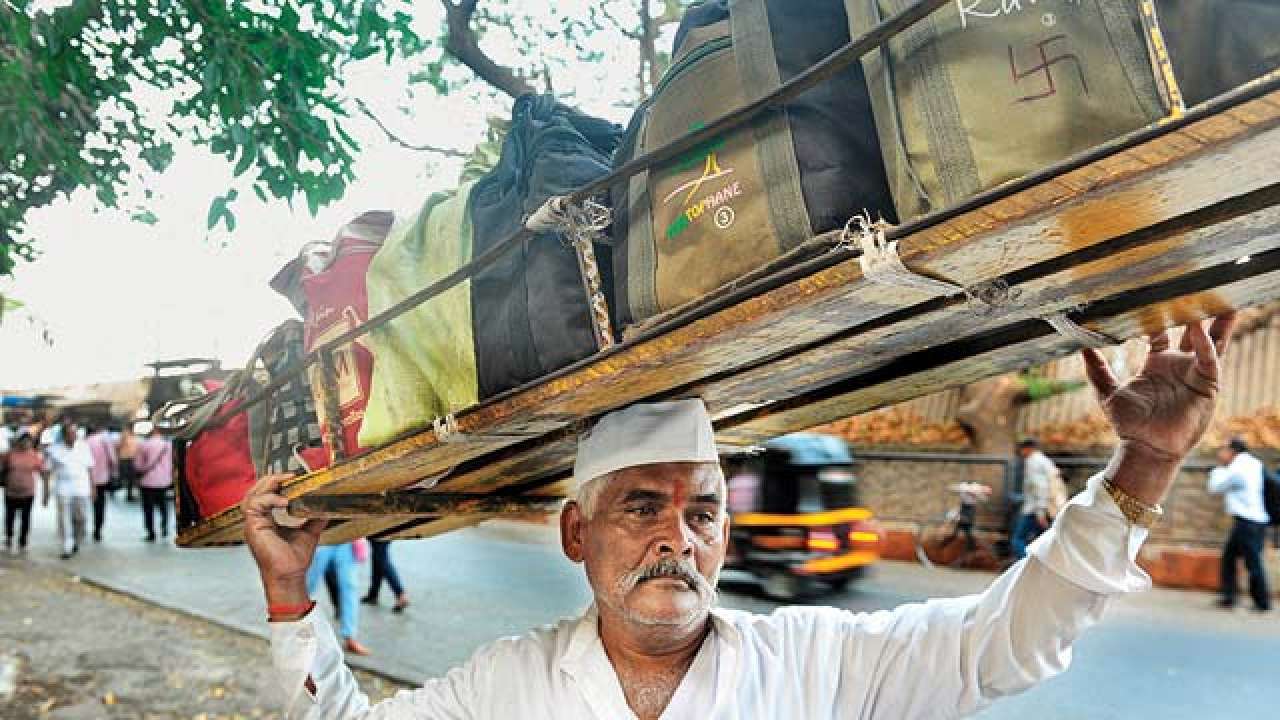Since 1890, dressed in a white outfit and traditional Gandhi cap, the Mumbai army of 5,000 Dabbawalas are fulfilling the hunger of almost 200,000 Mumbaikars. They are now struggling to feed their own families amidst this pandemic.
For more than a century the dabbawalas in Mumbai have been a part of the dream-ridden people’s lives.
Most dabbawalas in Mumbai are illiterate but they have perfected the art of punctual and accurate delivery through a simple code system of alphabets and numbers.
A dabbawala receives the same income irrespective of age, experience and number of customers served. They are not employees but are entrepreneurs and equal shareholders in the Dabbawala Trust.
With an error rate of 1 in 16 million, Mumbai dabbawalas have never failed mesmerise people with their hard work. The only time a dabbawala failed to deliver was in 2005 when Mumbai was lashed by heavy rains.
However, in this pandemic, although work from the home has started, these dabbawalas have been suffering tremendously.
Dabbawalas in Mumbai after lockdown
Cafe, bars and restaurants have opened in Mumbai after a period of six months, but with only an allowance of a 50 percent dine incapacity. Meanwhile, the work from home concept has severely hit dabbawalas.
A dabbawala in Mumbai said to ANI, they have been out of work for the last six months. Due to the lockdown, they haven’t been able to get their salary as well. For their everyday expenses, they are dependent on loans. They had started the local services since last month but are only making an income of about Rs 4,000.
He also said that something like this has never happened before. People who are working from home have also caused many problems for them and till the time people continue to work from home, the struggle of dabbawalas will continue.
Maharashtra Government support
Estimating the plight of the dabbawalas in Mumbai, the Maharashtra government allowed them to travel by local trains. But according to the spokesperson of Dabbawalas Association, Vishnu Kaldoke, it is a mere announcement. They are confused about where to go to get the QR code, as they are not allowed to travel in local trains for food supplies because they are yet to get a QR code for travel.
Many dabbawalas have basic phones and the QR code facility is only available in smartphones.
Kaldoke has requested the government to allow the dabbawalas to travel on their IDs. All dabbawalas have their personal IDs linking them to the organisation. He has also assured that if the allowance is granted, the organisation will make sure that all the precautions are taken while delivering the lunch boxes.

